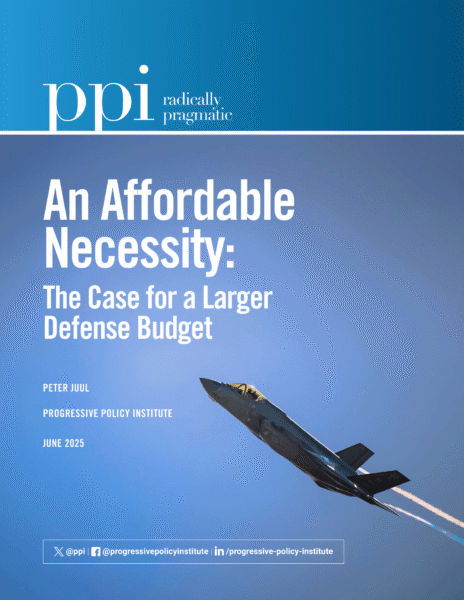Set aside the questionable legality and debatable wisdom of the air strikes ordered by President Trump this past Saturday against Iranian nuclear facilities. Ignore, for a moment, the technical prowess displayed by the U.S. military as well as Trump’s more recent attempts to force a cease-fire between Israel and Iran by shouting loudly on social media. Focus instead on the question of what, exactly, the United States hoped to accomplish with this strike — and how likely it is that the Trump administration will be able to actually attain its stated goals related to Iran’s nuclear program.
But Trump himself has repeatedly muddied the waters about what he seeks to achieve with his Iran policy in general and these strikes in particular. The strikes themselves appear to have been narrowly focused on three key Iranian nuclear facilities, and high-level administration officials like Vice President JD Vance, Secretary of Defense Pete Hegseth, and Secretary of State and acting National Security Adviser Marco Rubio, took to the Sunday talk show circuit to assert that the United States did not seek to overthrow Iran’s odious regime through military force. Later that day, however, President Trump wrote a social media post that seemingly called for regime change in order to “MAKE IRAN GREAT AGAIN.”
Taking Vance, Hegseth, and Rubio at their words and presuming limited policy objectives focused on curtailing Tehran’s nuclear program, it’s hard to see how this president and administration can actually achieve their goals. American bombs may well have severely degraded Iran’s nuclear capabilities, and it remains to be seen just how severely those capabilities have been degraded — but right now, they do not appear to have been destroyed.
Israel’s air campaign reportedly set Iran’s ability to build a nuclear bomb back just six months, while one former Trump administration official estimated that this past weekend’s American strikes “will likely set back the Iranian nuclear weapon program two to five years.” What’s more, the fate of Iran’s stockpile of near-weapons-grade highly enriched uranium — all 880 or so pounds of it — remains unaccounted for after being moved out of Tehran’s nuclear facilities ahead of anticipated American strikes. Making matters worse, the Trump administration lacks a realistic and credible diplomatic path toward any reasonable, stable endgame that serves American interests and constrains Iran’s nuclear program.
Indeed, Trump himself is the largest obstacle to such a path: he is an untrustworthy and mercurial interlocutor who constantly changes the outcomes he seeks, often overruling his own national security officials via flippant social media posts that declare policies opposed to those publicly articulated by his key advisors. As a result, it’s impossible to know what Trump really wants vis-à-vis Iran — indeed, there’s a good chance that Trump himself does not know what he wants beyond banner headlines and favorable coverage on Fox News — and therefore impossible for the United States to conduct actual diplomacy that might actually restrain (if not eliminate) Iran’s nuclear program.
Nor does it take much sympathy for Iran’s brutal regime to understand why it might not take Trump’s diplomacy all that seriously. After all, Trump tore up the 2015 nuclear agreement for no good reason in his first term and then attempted to negotiate a return to the deal once back in office. Israel launched its air campaign against the regime just before another round of talks to that end with Trump’s diplomatic envoy were scheduled to begin in Oman. He subsequently attempted to claim credit for the Israeli action before intervening in the conflict with his own set of strikes against Iranian nuclear facilities—an attack top American officials later claimed was strictly limited before Trump indulged in idle speculation about the need for regime change.
With this shifting set of goals and Trump’s ever-changing impulses, it’s difficult for Iran or any other interested party (such as the European Union or America’s Gulf partners) to put much stock in his administration’s diplomacy. Suppose the United States and Iran strike some sort of deal on Tehran’s nuclear program — what reason does Iran have to believe Trump will stick to it? A temporary accord may be possible, but such an agreement would not likely solve the problems posed by Iran’s nuclear program in any enduring way and may well be pursued by Iran as a way to open up space to recover and rebuild from the current Israeli and American air campaigns.
Put another way, the path to open-ended conflict between Iran and the United States appears much clearer than the route to a negotiated agreement that constrains Iran’s nuclear program. Think the Iraq no-fly zones of the 1990s on steroids, or a larger version of Israel’s own “campaign between the wars” in Syria during that country’s civil war. At minimum, strikes against Iranian nuclear targets every few years may be needed to keep Tehran’s nuclear program in check — and they may not do the job well enough. Trump himself likely has no real appetite for such a long-term military commitment, but that’s the course his rash decisions and poor policy choices may have set for the United States in the Middle East. We can hope that diplomacy will resume and prove successful when it comes to Iran’s nuclear program, but there’s very little reason to believe that Trump and his national security team will be able to get it right.
As America ought to have learned by now, wars — whatever their shape and intensity — are easy to start, but hard to finish.




 Listen to the full episode.
Listen to the full episode.
